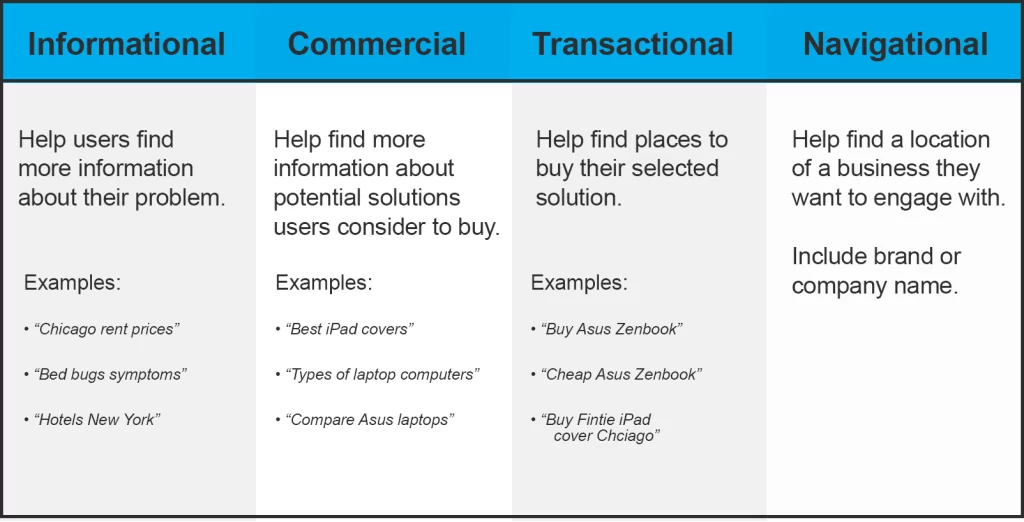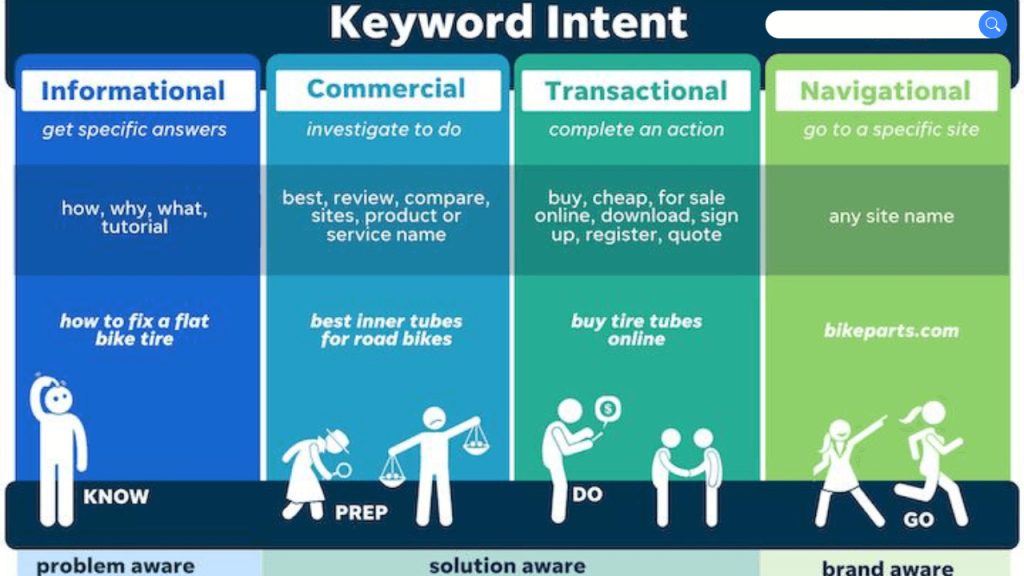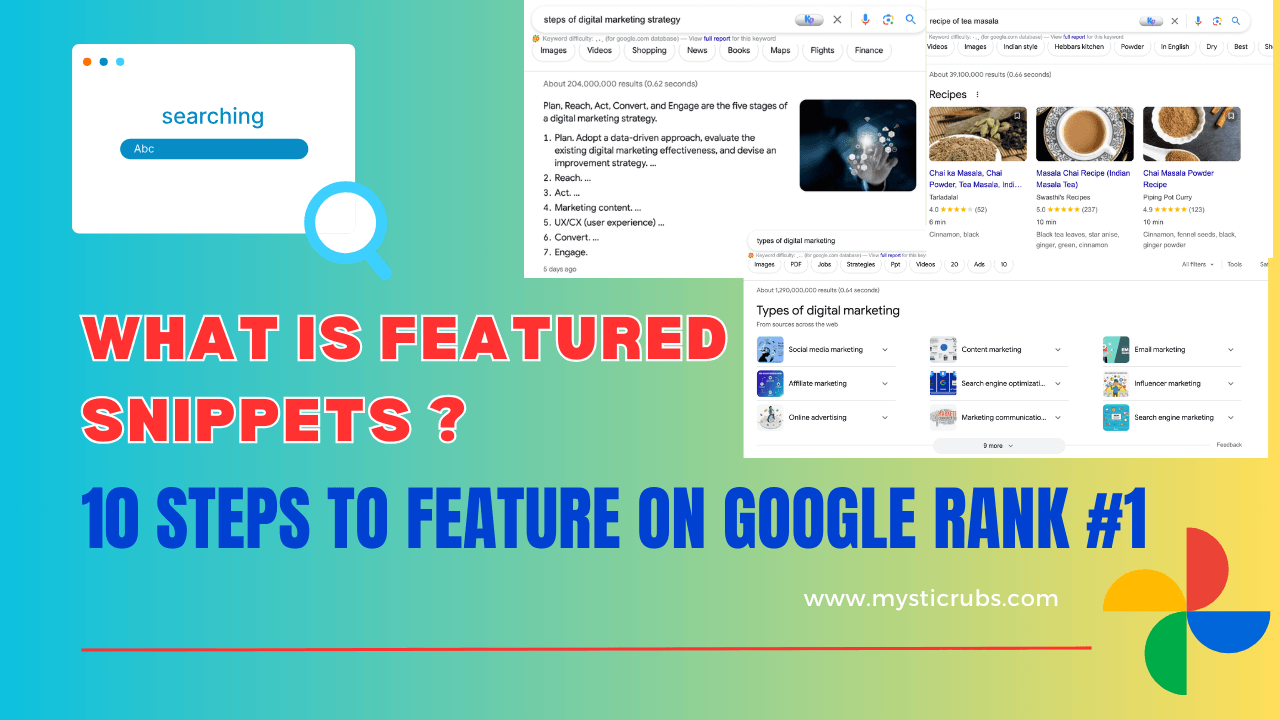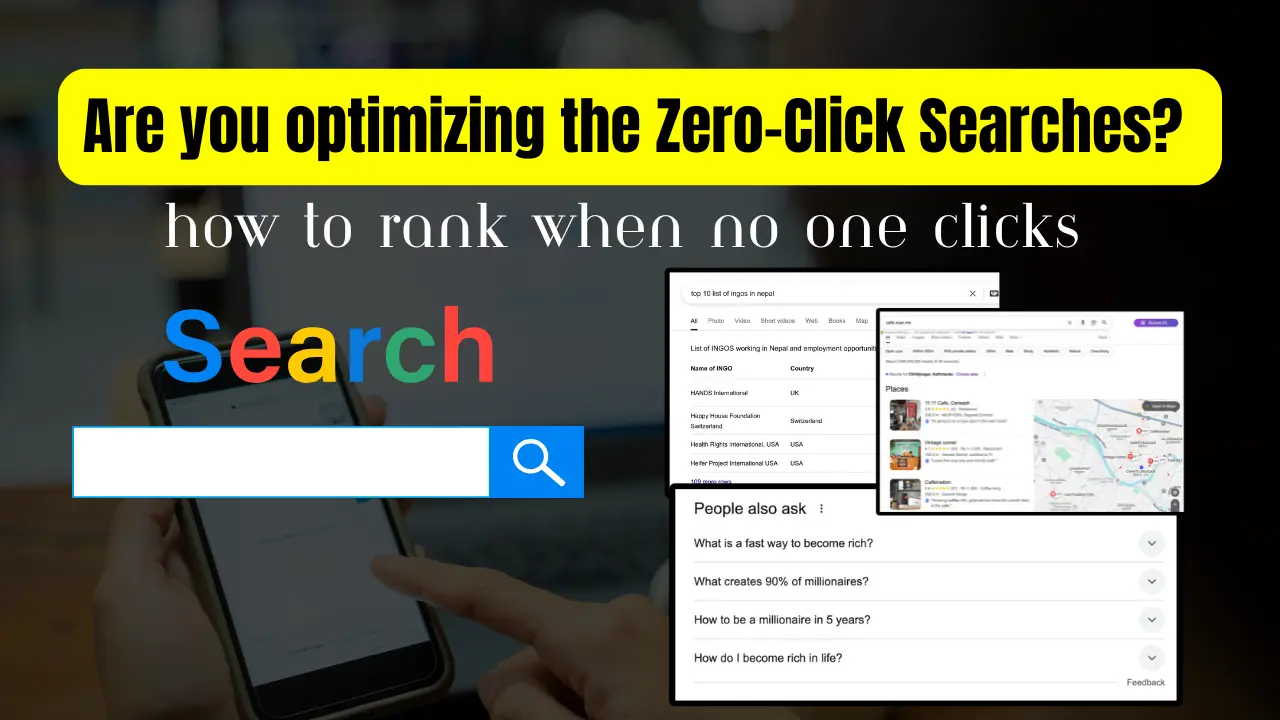Top 10 AI Marketing Apps & Benefits – Power of Artificial Intelligence
2 years agoHow Do Google Keywords Work? Magic Behind SEO Success
2 years ago -

In the vast digital era, understanding how do Google keywords work is essential for digital marketers and SEO experts helps to enhance online visibility. In this article, we’ll embark on a journey to demystify the mechanics of Google keywords, exploring the nuances that can propel your content to the top of search engine results.
Table of Contents
How Do Google Keywords Work in SEO?
Google keywords work in SEO to help pages rank higher in search results. Website owners use relevant keywords in content, affecting how Google’s algorithms estimate and display pages. Advertisers bid on keywords for paid placements, while organic results depend on effective keyword optimization, content quality, and user experience.
How Google Keywords work in Google’s Algorithm
To kick things off, let’s see the mysterious world of Google’s algorithm. Imagine it as a worldly-wise librarian organizing the vast library of the internet. Google keywords act as the Dewey Decimal System, helping the algorithm categorize and index content effectively.
What Are Google Keywords?
Simply put, Google keywords are the words or phrases users type into the search bar. These are the queries that unlock the doors to a treasure trove of information on the web. As a digital marketer or SEO expert, your goal is to align your content with these FREE Google keywords to become a prominent entry in the virtual library.
The Role of Keywords in SEO
Keywords are the backbone of Search Engine Optimization (SEO) Strategy. They signal to search engines what your content is about, helping them match user queries with relevant results. Mastering this art enhances your content’s chances of being prominently displayed on search engine results pages (SERPs). Let’s break down their vital role:
Understanding Content Relevance:
At its core, SEO is about connecting users with the most relevant content for their queries. Keywords serve as the bridge, indicating to search engines what your content is about. When users type a query, the search engine scans for matching keywords to deliver the most fitting results.
Signalling User Intent:
Keywords go beyond mere words; they signify user intent. By choosing the right keywords, you align your content with what users are actively seeking. This strategic alignment increases the likelihood of your content appearing on the coveted first page of search engine results.
Enhancing Visibility and Ranking:
Search engines use complex algorithms to assess the relevance and quality of content. Well-optimized keywords contribute to higher visibility and improved rankings. When your content matches user queries effectively, search engines recognize its value, boosting its position on the results page.
Guiding Crawlers Through Your Content:
Search engine crawlers are digital explorers that navigate the vast expanse of the internet. Keywords act as their guideposts, leading them through your content. By strategically placing keywords in titles, headings, and throughout your text, you ensure crawlers understand the context and relevance of your information.
Competitive Edge in Your Niche:
Effective keyword usage helps you stand out in a crowded digital space. By researching and selecting keywords specific to your niche, you can outperform competitors. This is especially crucial for businesses aiming to attract a target audience with precision.
Adapting to Algorithmic Changes:
Search engine algorithms evolve continually. Keeping your keyword strategy dynamic allows you to adapt to these changes. Staying informed about algorithm updates and adjusting your keywords accordingly ensures sustained visibility in search results.
Balancing Quantity and Quality:
While quantity matters, quality is paramount. The era of keyword stuffing is long gone. Today, search engines value content that provides genuine value to users. Striking a balance between the quantity of keywords and the quality of your content is the key to SEO success.
In essence, keywords are the compass guiding your content through the vast digital landscape. They are not just words; they are strategic tools that, when wielded effectively, can propel your content to the forefront of online visibility. Understanding and harnessing the power of keywords is fundamental to mastering the art and science of SEO.
Also Read: How SEO Can Improve Your Website’s Visibility? Common SEO Mistakes to Avoid
How to choose the Right Keywords?
Not all keywords are created equal. How do Google Keywords work? It’s crucial to conduct thorough research to identify keywords relevant to your content and target audience. Tools like Google Keyword Planner can be your compass in navigating the vast landscape of potential keywords. Let’s navigate the process of choosing keywords that will elevate your content and optimize your online presence:
Understanding Your Audience
The foundation of choosing the right keywords lies in understanding your target audience’s needs. Consider their preferences, behaviours, and the language they use. By aligning your keywords with your audience’s mindset, you create a more meaningful connection.
Conducting Thorough Keyword Research
Keyword research is the compass that guides your content strategy. Utilize tools like Google Keyword Planner, SEMrush, or Ahrefs to unearth relevant keywords. Look for a balance between search volume and competition, aiming for keywords that reflect your content’s essence.
Long-Tail Keywords: Precision over Volume
While broad, short keywords may have high search volumes, they also come with intense competition. Enter long-tail keywords – more specific phrases that cater to niche audiences. These gems may have lower search volumes but can deliver highly targeted traffic, enhancing the quality of interactions.
Analyzing Competitor Keywords
Spying on the competition isn’t just for cloak-and-dagger scenarios; it’s a legitimate strategy in the digital realm. Identify competitors in your niche and analyze their keyword choices. This not only provides insights into successful digital marketing strategies but also helps you discover untapped keyword opportunities.
Considering User Intent
Why do users search for specific keywords? Understanding user intent is crucial. Some queries seek information, while others aim for transactional results. Select your keyword to align with the various search intents of your audience, ensuring your content satisfies their needs.
Strategic Placement in Content
Choosing keywords is just the beginning; where you place them matters. Incorporate keywords naturally into your content, focusing on titles, headings, and throughout the text. This strategic placement not only aids search engines in understanding your content but also enhances user experience.
Regularly Updating Keyword Strategy
The digital landscape is dynamic, and so should be your keyword strategy. Stay vigilant about shifts in user behaviour, industry trends, and search engine algorithms. Regularly update your keywords to remain relevant and maintain a competitive edge.
Monitoring and Analyzing Performance
Your keyword journey doesn’t end with implementation. Use analytics tools to monitor keyword performance. Identify which keywords are driving traffic, conversions, and engagement. This data is invaluable in refining your strategy and adapting to the evolving digital terrain.
Embracing a Variety of Keyword Portfolios
Avoid putting all your keyword eggs in one basket. Diversify your keyword portfolio to capture a broader audience. Include a mix of short and long-tail keywords, ensuring your content is discoverable by various search queries.
Quality Over Quantity
In the realm of keywords, quality triumphs over quantity. Focus on selecting keywords that authentically represent your content. A well-chosen keyword might attract less traffic, but if it aligns with your audience’s needs, it can lead to more meaningful interactions and conversions.

Choosing the right keywords is a strategic dance How do Google Keywords work in between understanding your audience, researching effectively, and adapting to the ever-changing digital landscape? With the right keywords, your content becomes a beacon, guiding your audience to precisely what they’re searching for in the vast sea of online information.
Long-Tail Keywords: how do Google Keywords work
Long-tail keywords are the unacknowledged heroes of how do Google Keywords work in SEO. While short, generic keywords are highly competitive, long-tail keywords are more specific and can bring in highly targeted traffic. It’s like choosing a specific aisle in the library rather than wandering.
Keyword Density: Striking the Balance

Keyword density is the ratio of keywords to the total content length. Striking the right balance is crucial. Too many keywords and your content feels forced; too few, and you risk being overlooked by the algorithm. Aim for a natural flow that enhances readability while staying SEO-friendly.
The Impact of Latent Semantic Indexing (LSI)
LSI is Google’s way of understanding the context of your content. It identifies related terms and phrases, ensuring a more nuanced understanding. Think of it as the algorithm reading between the lines to provide users with the most relevant and comprehensive results.
Google AdWords: A Keyword Goldmine
Google AdWords is not just for ads; it’s a goldmine for discovering high-performing keywords. Dive into the world of paid advertising to uncover valuable insights that can inform your organic keyword strategy.
Monitoring and Adjusting Your Keywords
SEO is not a set-it-and-forget-it endeavour. Regularly monitor your keyword performance and be ready to adapt to know how Google Keywords work. Google’s algorithm evolves, and so should your keyword strategy.
User Intent: The Heart of Keyword Strategy

Understanding user intent is paramount. Ask yourself: What is the user seeking when typing these keywords? Crafting content that aligns with user intent ensures not just visibility but also user satisfaction.
The Future of Google Keywords
As technology advances, so does the landscape of SEO. Stay ahead by keeping an eye on emerging trends, such as voice search and artificial intelligence, to future-proof your keyword strategy. The future of Google Keywords changes is key to maintaining a competitive edge. Let’s explore what lies ahead:
- Voice Search Takes the Lead: Use better conversational and long-tail keywords as voice search becomes more prevalent with devices like smart speakers.
- AI and Machine Learning Integration: Google is getting smarter. Keywords need to consider not just words but also context and relevance, as AI and machine learning play a more significant role.
- Featured Snippets Matter More: Being at the top of search results isn’t enough; focus on grabbing featured snippets and rich results by structuring your content for direct answers.
- Mobile-Friendly Keywords: Mobile-first indexing means keywords should align with how people search on their phones. Think of shorter queries and local optimization.
- Visual Search and Ephemeral Content: Keywords won’t be just about text. Visual search and short-lived, engaging content like stories require keyword incorporation into images and videos.
- Personalization Rules: Google prioritizes personalized results. Your keyword strategy must understand your audience’s behaviour to deliver tailored content.
- Local SEO for Micro-Moments: Capture quick, immediate needs with local SEO. Optimize for “near me” searches and provide swift, relevant information.
- Evergreen Content with Timely Updates: Keep your content evergreen but regularly update it to stay relevant. Blend timeless topics with current trends.
Adapting to these changes will keep your content visible and valuable in the evolving world of how Google Keywords work in SEO. Stay flexible, embrace the shifts, and use emerging tech to your advantage.
Conclusion: Mastering the Keyword Symphony
In conclusion, mastering the art of how do Google keywords work is akin to conducting a symphony. Each keyword is an instrument playing its part in creating a harmonious user experience. With the right melody of keywords, your content can rise to the top, resonating with your audience and the ever-discerning Google algorithm.
FAQs
What makes a keyword effective?
An effective keyword is relevant to your content, identifies for business with more search volume with less keyword difficulty (KD), and aligns with user intent.
Are long-tail keywords really that important?
Absolutely. Long-tail keywords may have lower search volume, but they bring in highly targeted traffic, improving conversion rates.
How often should I update my keywords?
Regularly. Google’s algorithm evolves, and so should your keyword strategy. Aim for updates every few months.
Can I rely solely on paid advertising for keywords?
While paid advertising provides valuable insights, a balanced approach with organic keywords is ideal for long-term SEO success.
Is there a limit to the number of keywords I should use?
There’s no strict limit, but focus on quality over quantity. Ensure a natural flow in your content without keyword stuffing.
Unlock the potential of Google keywords, and watch your online presence soar. Happy optimizing!
- What are the top highest rating most watched K-Dramas on Netflix right now?
- How to Optimize for Zero-Click Searches? Is It Bad for SEO?
- Metaverse Marketing: Social Media Marketing in the Metaverse
- What is On Page Optimization? Keyword, URL, Meta Tags, ALT Tags & MORE!



![[2025 Updated] Top 10 Digital Marketing Agencies in Nepal Ranked!](https://mysticrubs.com/wp-content/uploads/2022/05/top-10-digital-marketing-company-in-nepal.png)








